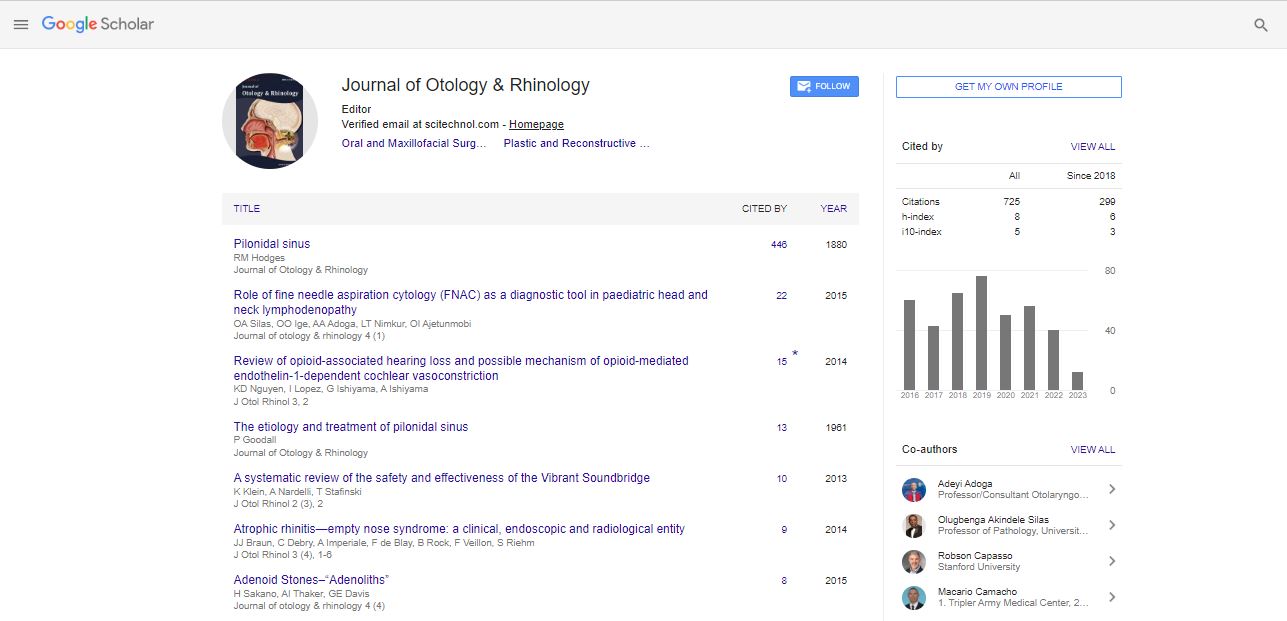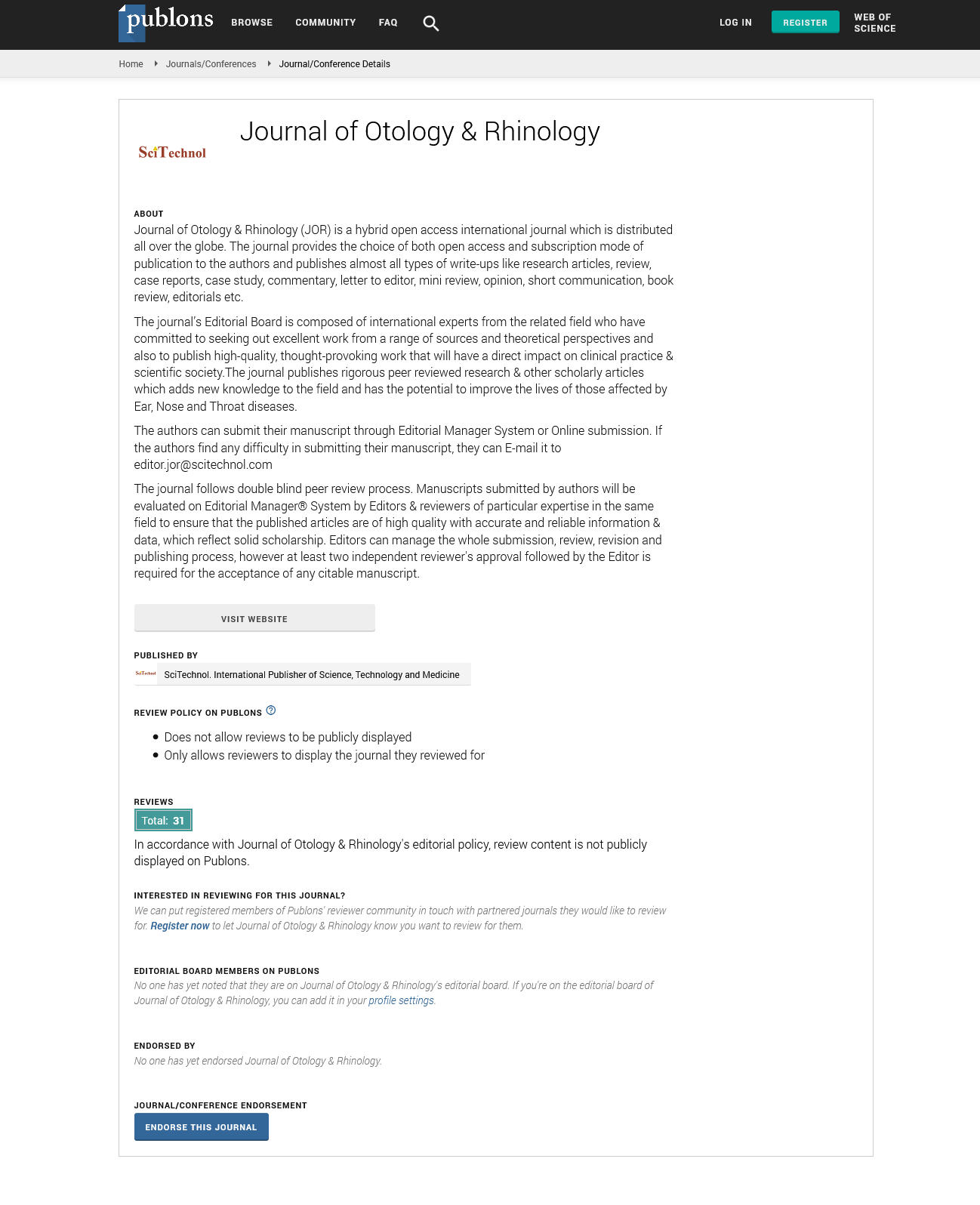Surgical management of velopharyngeal insufficiency
Mosaad Abdel-Aziz
Cairo University, Egypt
: J Otol Rhinol
Abstract
Velopharyngeal insufficiency (VPI) is a common problem especially after cleft palate repair; it causes hypernasal speech with its consequent problems. Children with hypernasal speech are often considered less intelligent, less pleasant, and less attractive. Such perceptions can seriously affect the social life of children. It is caused by inability to close the velopharynx during articulation of speech, results in escape of consonants and air on speaking. Secondary corrective surgery may be needed either to lengthen the palate or to obturate the velopharyngeal port. Different surgical options are available, including posterior pharyngeal flap, sphincter pharyngoplasty, Furlow palatoplasty, palatal re-repair, and posterior pharyngeal wall augmentation. Selection of surgical procedure is dependent on the size and site of the velopharyngeal gap and the pattern of the velopharyngeal closure. To optimize the surgical results, the procedure is tailored to each individual patient.
 Spanish
Spanish  Chinese
Chinese  Russian
Russian  German
German  French
French  Japanese
Japanese  Portuguese
Portuguese  Hindi
Hindi 


